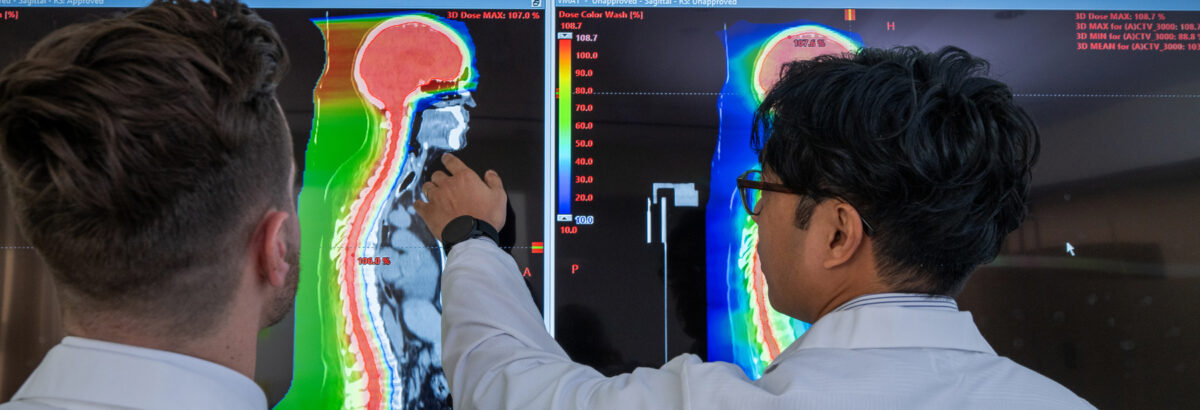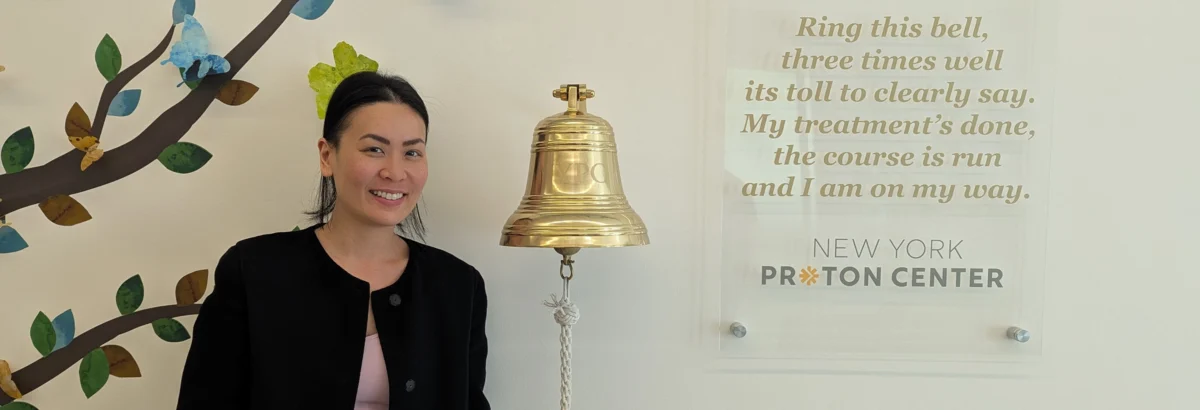The Promise of Proton Therapy for Breast Cancer
With approximately 285,000 new cases per year, 1 in 8 women in the United States will be diagnosed with breast cancer in their lifetime. This Breast Cancer Awareness Month, we at the New York Proton Center reaffirm our commitment to provide women and men with breast cancer the best and most effective treatment options with the fewest side effects.
A significant body of academic medical research shows proton therapy has proven highly effective in treating breast cancer. Yet, due to stringent payor regulations and the time required to develop and complete clinical research trials, proton therapy remains out of reach for far too many people whose lives could benefit greatly from this treatment.
Proton radiation allows for precisely targeted doses delivered directly to the tumor, while limiting damage to tissues and organs surrounding the breast, such as the heart and lungs. The precise nature of the radiation means patients can have better preservation of their quality of life and fewer severe late side effects—damage to the heart, lung scarring, and secondary cancers—typical for patients undergoing traditional radiotherapy.
Despite the challenges to access, this is an exciting moment of treatment innovation for breast cancer. Clinical trials are underway that have the potential to reshape the care model for the large number of breast cancer patients who should qualify for proton therapy.
One example is the Radiotherapy Comparative Effectiveness Study, or RadComp, which the New York Proton Center is working with 23 research sites across the country to advance. RadComp is the first national randomized clinical trial to evaluate the efficacy of proton therapy compared to traditional radiotherapy for patients with locally advanced breast cancer. It is the largest study of its kind to date, evaluating data from nearly 1,300 patients.
These large-scale studies could have a profound impact on access to proton therapy for the subsets of patients with complex or more difficult-to-treat tumors that we know will benefit from better coverage from their health insurance. In a recent international consensus statement from the Particle Therapy Cooperative Group (PTCOG), our own Research and Clinical Director, Dr. Isabelle Choi, collaborated with leading breast cancer researchers to recommend proton therapy specifically for patients who have:
- Indications for regional lymph node irradiation
- Undergone a mastectomy and have indications for post-mastectomy radiation treatment (PMRT)
- Indications for partial breast irradiation
- Complex anatomy resulting in higher radiation doses to nearby organs at risk or necessitating compromises in target coverage
- A need for bilateral breast/chest wall irradiation
- Radiotherapy treatment that must be delivered in the arms down position
- A breast cancer recurrence and need reirradiation
In each case, more clinical trial data are needed to ensure greater coverage by insurance plans.
In summary, while existing data are already quite exciting, the full potential and value of proton therapy for breast cancer has yet to be realized. However, as technical advances continue to accelerate and the data grow that definitively demonstrate the benefits of proton therapy for select breast cancer patients, improved access will undoubtedly follow.
Long term clinical data will continue to become available in the years ahead, including the results from ongoing randomized trials in which our team is taking a leading role, and these studies should inform which patients are most likely to benefit from proton therapy.
This is a crucial moment for the field of oncology; just as science is always evolving, so should our understanding of the most effective treatments for breast cancer. The data are already clear. Now, we will continue to forge a path forward to ensure proton therapy is accessible to every woman whose life it would improve.
About the Author
Dr. Isabelle Choi is the Director of Research and Clinical Director at the New York Proton Center. Her research focuses on improving outcomes, reducing toxicities and more effectively delivering radiotherapy for breast, gastrointestinal, and gynecologic malignancies. Among her select national leadership appointments, Dr. Choi is Chair of the Proton Collaborative Group Publications Committee and Breast Subcommittee, is Chair of the National Association of Proton Therapy’s Physician Advisory Committee, and is the President of the Korean American Society of Radiation Oncology.



